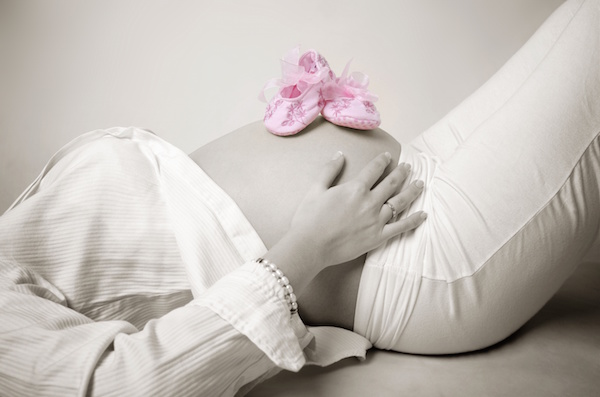
MONDAY, May 24 (HealthDay News) — Pregnant women who get the H1N1 pandemic strain of flu are at high risk of experiencing serious complications for themselves and their unborn child, a new study finds.
According to the report, there has not been much data about the effect of the novel H1N1 flu on pregnant women and their fetuses, and what data exists is conflicting. In other pandemic flus — in 1918 and 1957 — pregnant women were at a high risk of being hospitalized and dying, the researchers noted.
“In keeping with prior pandemics, pregnant women don’t do well with pandemic flu, because they have a compromised immune response,” said influenza expert Dr. Marc Siegel, an associate professor of medicine at New York University in New York City.
In addition, they don’t do as well because they lack immunity to these new flu strains. “So, if you put together that they don’t have the immune response that you would like, plus they don’t have previous immunity, it’s a bad combination,” he said.
The report is published in the May 24 issue of the Archives of Internal Medicine.
For the study, a team led by Dr. Andrew C. Miller, of the State University of New York Downstate Medical Center and Kings County Hospital Center in Brooklyn, looked at data on 18 pregnant women with H1N1 flu admitted to hospitals between May 18, 2009, and June 24, 2009.
These women were compared with pregnant women who had the 1918 and 1957 pandemic flu strains.
All the women in the current study were started on the antiviral drug oseltamivir (Tamiflu) when they were admitted to the hospital, the researchers noted.
Among these women, three were admitted to intensive care. In addition, seven women gave birth while they were in the hospital — six prematurely.
Of the six premature births, five newborns had fetal distress syndrome, which involves a significant lowering of the fetal heart rate, and four were delivered by emergency Cesarean section. And while no congenital birth defects were seen, two infants died, according to the report.
“Little data are available regarding fetal outcomes and mortality rates among H1N1-infected mothers,” the researchers wrote. “Of the 18 patients in this series, one had a spontaneous abortion and one died postnatally from complications of extreme prematurity and sepsis,” they say. “H1N1 poses a serious health threat to pregnant patients.”
This group of women responded to the new H1N1 in the same way pregnant women responded to other pandemic flus, Siegel said. “There is a high rate of complications, there is a high rate of early-term delivery, there is a high rate of deaths in fetuses This is all predictable,” he said.
“This illustrates the importance of flu vaccine in pregnancy,” Siegel added.
Going forward, Siegel does not expect to see a massive recurrence of the H1N1 flu. In this season’s flu vaccine, the H1N1 pandemic strain will be one of the components of the shot, he noted.
More information
For more information on H1N1 flu, visit the Flu.gov.

